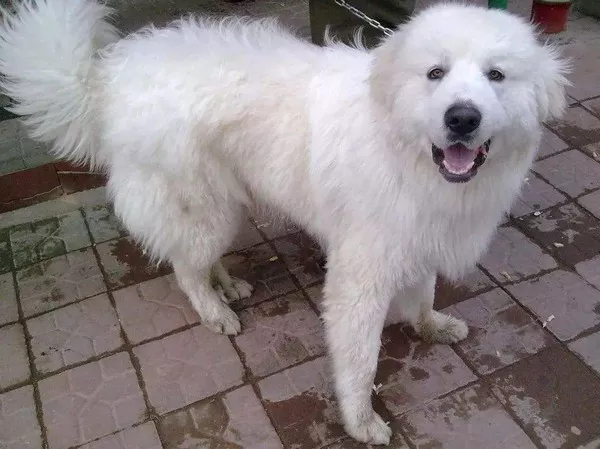When it comes to caring for rabbits, understanding their dietary needs is crucial for their health and well-being. One question that often arises is whether rabbits can safely consume horse feed. To address this, we must first explore the dietary requirements of rabbits, the composition of horse feed, and the potential risks and benefits of feeding horse feed to rabbits. This comprehensive analysis will provide a clear understanding of whether horse feed is an appropriate choice for rabbits.
Characteristics of Rabbits
Physical and Dietary Needs
Rabbits are small herbivores with unique nutritional requirements. They have specialized digestive systems that are adapted to a diet high in fiber and low in protein and fat. Their digestive health depends heavily on consuming appropriate types of food. Rabbits require a diet that includes:
Hay: The primary component of a rabbit’s diet, providing essential fiber.
Fresh Vegetables: Leafy greens and other vegetables contribute necessary nutrients.
Pellets: Formulated specifically for rabbits, these provide additional vitamins and minerals.
Digestive System
The rabbit’s digestive system is intricate, with a large cecum that ferments fiber and produces cecotropes, which they consume to extract more nutrients. This specialized digestion process requires a constant intake of fibrous materials to function correctly. Feeding rabbits a diet that deviates from their natural requirements can lead to serious health issues, including gastrointestinal stasis and obesity.
Understanding Horse Feed
Composition of Horse Feed
Horse feed is designed to meet the dietary needs of horses, which are quite different from those of rabbits. Horse feed typically consists of:
Grains: Such as oats, barley, and corn, which provide high energy.
Forages: Including alfalfa and other legumes, which offer protein and fiber.
Additives: Vitamins, minerals, and sometimes medications tailored to horse health.
Nutritional Requirements for Horses
Horses require a diet that supports their size, activity level, and metabolic needs. Their feed is rich in energy and protein, suitable for their larger size and higher activity levels. The composition of horse feed is specifically formulated to maintain healthy weight, muscle mass, and overall health in horses.
Comparing Rabbit and Horse Diets
Fiber Needs
Rabbits have a high fiber requirement to support their digestive system. They need a diet predominantly made up of hay and fresh vegetables to ensure proper digestion and prevent health issues. Horse feed, on the other hand, is often lower in fiber and higher in energy, which is not suitable for rabbits.
Protein and Fat Content
Horse feed is typically higher in protein and fat compared to rabbit feed. Rabbits do not require high levels of protein or fat in their diet. Excess protein and fat can lead to health problems in rabbits, such as obesity and kidney issues.
See Also: Can Rabbits Eat Napier Grass?
Digestive Adaptations
Rabbits have a cecum that helps ferment fiber and extract nutrients. They are adapted to break down fibrous plant material, while horses have different digestive adaptations that process grains and forages differently. Feeding rabbits horse feed can disrupt their digestive processes and lead to health complications.
Risks of Feeding Horse Feed to Rabbits
Nutritional Imbalance
Horse feed is formulated to meet the needs of horses, not rabbits. Feeding horse feed to rabbits can result in nutritional imbalances. High levels of protein, fat, and energy are unsuitable for rabbits and can cause:
Obesity: Excess energy from high-calorie feeds can lead to weight gain.
Gastrointestinal Issues: Digestive problems such as diarrhea or constipation may arise from inappropriate feed.
Nutrient Deficiencies: Lack of proper fiber and essential nutrients can affect overall health.
Potential Health Problems
Feeding horse feed to rabbits can cause specific health issues, including:
Gastrointestinal Stasis: A serious condition where the digestive system slows down or stops, often due to inappropriate diet.
Kidney Strain: Excessive protein can strain the kidneys, leading to potential health issues.
Dental Problems: Incorrect diet can affect dental health, as chewing different types of feed can impact dental wear and tear.
Safe Alternatives for Rabbit Nutrition
Appropriate Rabbit Feed
To ensure optimal health, provide rabbits with a diet specifically formulated for their needs. This includes:
High-Quality Hay: Unlimited access to fresh hay is essential.
Fresh Vegetables: Offer a variety of leafy greens and vegetables.
Pellets: Use pellets designed for rabbits, providing necessary vitamins and minerals.
Nutritional Supplements
If you’re concerned about your rabbit’s nutrition, consult with a veterinarian. They can recommend appropriate supplements or dietary adjustments to address any specific health concerns.
Conclusion
Rabbits have distinct dietary needs that are not met by horse feed. Horse feed is formulated for the nutritional requirements of horses, which differ significantly from those of rabbits. Feeding rabbits horse feed can lead to nutritional imbalances and various health issues. For optimal health, rabbits should be fed a diet that includes high-quality hay, fresh vegetables, and rabbit-specific pellets. Always consult with a veterinarian before making any changes to your rabbit’s diet to ensure their nutritional needs are met appropriately.
Related Topics:























